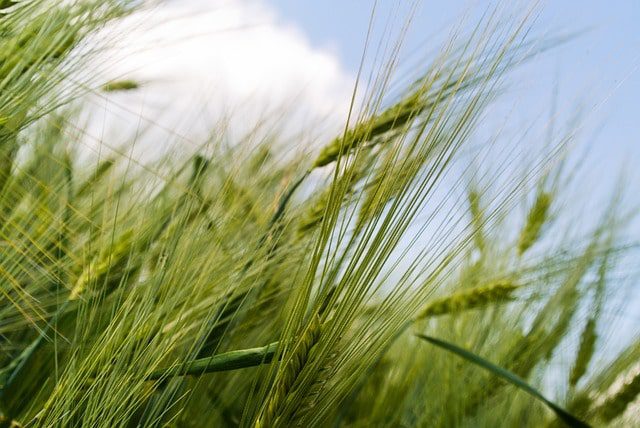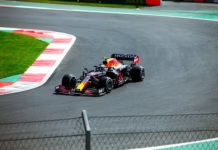November 19 will mark 120 days since the international deal on crops export signing in Istanbul. The agreement helped to restrain the prices of agricultural products on the global markets and improve Ukraine’s balance of trade. Russia finds an excuse to withdraw from the grain agreement and weaponize food.
Russia announced the withdrawal from the “grain agreement” after today’s explosions in the occupied Sevastopіl, as a result of which several Russian Caliber carrier ships were damaged.
“Russia’s decision to suspend participation in the Black Sea deal puts at risk the main export route of much-needed grain and fertilizers to address the global food crisis caused by its war against Ukraine. The EU urges Russia to revert its decision”, – foreign policy chief Josep Borrell said in a statement on Twitter.
Recently Russia has threatened that it will reassess cooperation with the United Nations secretary general, António Guterres if he sends United Nations experts to Ukraine to inspect drones that western powers say were made in Iran and used by Moscow in violation of a UN resolution. Speaking after a closed-door UN security council meeting on Moscow’s use of drones, Russia’s deputy UN ambassador, Dmitry Polyanskiy, threatened Russia would withdraw from the grain deal that has allowed Ukrainian grain to be transported out of Black Sea ports.
“We have warned of Russia’s plans to ruin the Black Sea Grain Initiative. Now Moscow uses a false pretext to block the grain corridor which ensures food security for millions of people. I call on all states to demand Russia to stop its hunger games and recommit to its obligations.” – Dmytro Kuleba, Minister of Foreign Affairs of Ukraine.
President Zelenskiy said in his evening address that the decision of Russia was predictable. “Russia’s decision had not been made today, but in September, when it blocked the movement of ships with our food produce”. “Why is it that some handful of individuals somewhere in the Kremlin can decide whether there will be food on the tables of people in Egypt or in Bangladesh?” he added.
Ukraine, Turkey, the Russian Federation and the United Nations launched the Black Sea Grain Initiative on July 22, 2022. Due to the agreement, a mechanism of safe grain transportation, relevant food products and fertilizers, including ammonia, was created from 3 key Ukrainian ports to the world markets. Port unblocking stabilizes world food prices and helps to fight the food crisis, which has intensified since the start of Russia’s armed aggression.
Ukraine supplies about 45 million tons of grain to the world market annually, but after Russia’s invasion in late February 2022, the export of agricultural products from Ukraine was significantly affected. Many of the grains have accumulated in the silos because of the blockade by the military forces of the Russian Federation of Ukrainian ports, some of the food and crops have been damaged by shooting and occupation, and some have been stolen. This has led to price hikes for major food products around the world, which are critical for some countries in the Middle East and Africa.
Climate crisis, the global problems with grain supply suffered as a result of Russia’s war against Ukraine becoming one of the main causes of 830 million people living in malnutrition today, according to German President Frank-Walter Steinmeier.
A total of 397 vessels exported 9 million tons of agricultural products, which are intended for countries of Asia, Europe and Africa. The general picture of the number of agricultural products that crossed the border of Ukraine in percentage for the first half of October is as follows: 43% is planted with corn, 29% with wheat, 7% with rapeseed, 6% with sunflower oil, and 15% of other agricultural products. Cargo destinations and percent of deliveries:
28% to low- and lower-middle-income countries: Egypt (10%), Iran and India (5%), Sudan and Kenya (2%), and Djibouti, Lebanon, Somalia and Yemen (1%);
27% to countries with incomes above average: Turkey (19%), China (8%) and Bulgaria (<1%);
44% in high-income countries: Spain (13%), the Netherlands (8%), Italy (7%), the Republic of Korea (5%), Romania (4%), Germany (2%) and France , Greece, Ireland and Israel (1%).
In addition to these shipments, commercial vessels leaving Ukraine have carried a range of food products including wheat, corn for animal feed, sunflower meal, soya beans, sunflower oil and sunflower seed. Food security experts have said many of these shipments are deliveries on existing contracts that were struck before Russia’s invasion, rather than new shipments that have been earmarked for Europe. Also Turkey is a popular destination because it is a major miller of wheat, and the grain arriving there could be then shipped to poorer nations in Asia and Africa, or to Europe.
“It is vital that all parties refrain from any actions that could jeopardize the Black Sea Grain Initiative, which is a critical humanitarian activity that clearly positively affects access to food for millions of people around the world,” said UN spokesman Stephane Dujarric.
“The signatories are Russia, Turkey and the UN. And Ukraine has not signed any agreements with Russia, because it understands that it almost never adheres to its obligations. Therefore, we are waiting for the reaction of the signatories,” – said Press Secretary of the President Zelensky, Nikiforov, to the public. Farhan Haq, deputy Spokesman for the Secretary-General of the UN said that they maintain a connection with the Russian authorities.
Experts:
Markiyan Dmytrasevych, Deputy Minister of Agrarian Policy and Food of Ukraine
Vitalii Holovnia, Deputy Minister of Agrarian Policy and Food of Ukraine
Yurii Vaskov, Deputy Minister of Infrastructure of Ukraine
Mark Savchuk, Memeber of the Ukrainian volunteer Journalist initiative, specialises in the transparency of the energy sector and macroeconomic outlook, BSc in civil engineering from City University London, since the beginning of the Russian invasion provides commentaries on the military situation in Ukraine for international media outlets
Sergiy Fursa, Deputy Director of Dragon Capital
Alex Lissitsa, Leading specialist in agribusiness and food industry sectors of the economy, IMK
Alexandra Prokopenko, independent analyst focused on Russian government policymaking on economic and financial issues.
Oksana Lesnyak, Head of the Asia-Pacific Bureau of the Kyiv-based Center for Global Studies Strategy XXI

| [donate]
| Help keep news FREE for our readersSupporting your local community newspaper/online news outlet is crucial now more than ever. If you believe in independent journalism,then consider making a valuable contribution by making a one-time or monthly donation. We operate in rural areas where providing unbiased news can be challenging. |


















